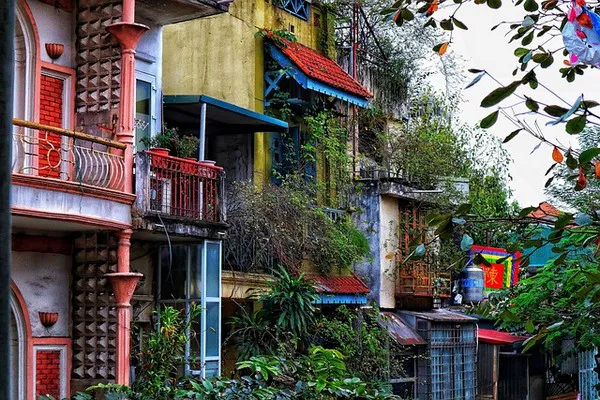A recent study led by the University of Göttingen sheds light on the intricate relationship between urbanization, biodiversity, and the dynamic interactions between plants and pollinators. The research, conducted by an international team, focused on vegetable-producing farms in the rapidly growing southern Indian metropolis of Bengaluru, exemplifying the challenges posed by urban expansion in tropical regions. Published in the journal Ecology Letters, the study underscores the surprising variations in plant-pollinator networks throughout the seasons.
The research team, led by Dr. Gabriel Marcacci, a former Ph.D. student at the University of Göttingen, and currently a postdoc at the Swiss Ornithological Institute and the University of Neuchâtel, examined 36 farms over the course of a year. The farms were strategically distributed along urban-to-rural routes, encompassing the city center and rural villages. By assessing bee species, plant interactions, and the frequency of these connections, the researchers aimed to discern the factors influencing the dynamics of plant-pollinator networks.
The findings revealed that urbanization accentuates the seasonal differences in these networks, particularly evident when comparing urban and rural cultivation areas. The study identified major fluctuations in the plant and bee species engaged in pollination, with significant variations observed between the mild-dry winter, hot-dry summer, and rainy monsoon seasons.
The research team delved into the factors influencing these interactions, exploring the impact of the time of year, distance from the city center, and the degree of urbanization, as indicated by the proportion of “sealed surfaces” such as roads, buildings, or pavements.
Dr. Gabriel Marcacci emphasized the study’s significance, stating, “Our study provides new insights into the role of urbanization in the dynamics of networks involving plants and pollinators in the tropics, which have been little studied.” He further highlighted the importance of considering ecological, climate, and social factors unique to tropical regions, where current and future urban expansions are predominantly occurring.
Co-authors Professors Catrin Westphal and Teja Tscharntke from the University of Göttingen, along with Ingo Grass from the University of Hohenheim, emphasized the study’s contribution to understanding the often-overlooked role of seasonality in plant-pollinator interactions, particularly in the context of rapidly growing tropical megacities.
Conducted as part of an interdisciplinary DFG research group investigating socio-ecological systems at the interface of urban and rural environments in India, the research provides valuable insights into the complex dynamics of urbanization’s impact on biodiversity and plant-pollinator relationships.


